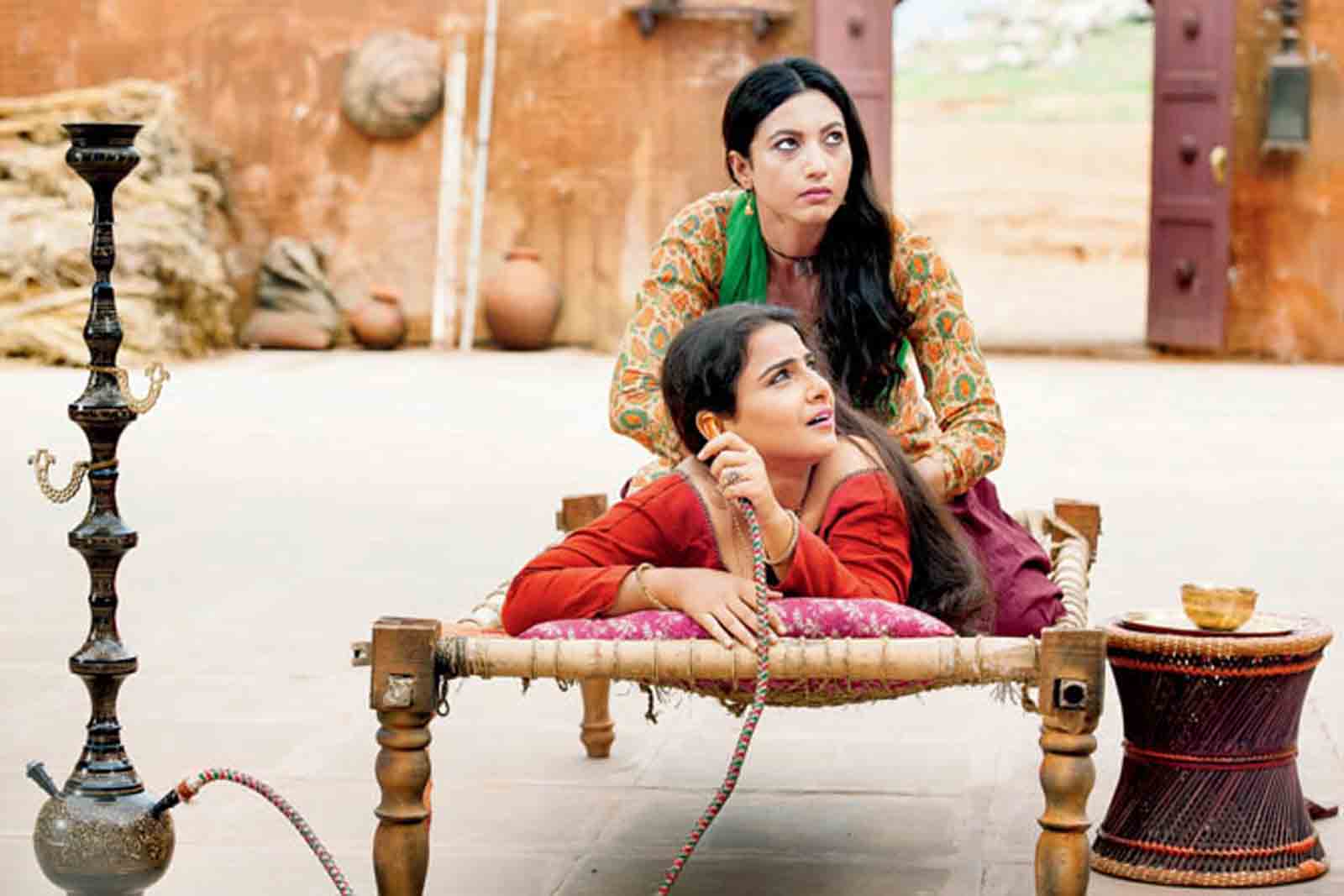

MUMBAI: Srijit Mukherji’s “Begum Jaan” is a Hindi remake of his earlier Bengali film “Rajkahini”, about a stubborn brothel keeper caught in the tumultuous aftermath of the partition of India in 1947. Vidya Balan plays the eponymous protagonist with a Frida Kahlo-esque unibrow and a volatile personality to match.

She runs her brothel with an iron hand, cussing and shouting down anyone who dares threaten her authority. All that bravado is not because of her inherent strength, but because of the patronage of the king (Naseeruddin Shah). But with India’s independence, Begum Jaan finds her haven under threat.
_2.jpg)
When government officers from both sides (India and Pakistan) inform her that the brothel is on the border and would have to be torn down, Begum Jaan exhibits a bull-headedness that is inexplicable. For a woman shown to be so ruthless when it comes to her business, she displays a baffling lack of knowledge about the outside world, thus making her fight seem pointless.

The camaraderie between the women of the brothel, their backstories and their conflicts are not new -- Shyam Benegal’s “Mandi” was a more sensitive portrait of the women in the flesh trade and the men who exploit them. But Mukherji is too busy creating melodrama on screen to put some thought into his screenplay. The sound design in “Begum Jaan” is non-existent and the actors seem to have forgotten voice modulation, given how they all scream instead of talking.

As millions around them are displaced from their homes and livelihoods, the women stand their ground, until local goon-for-hire Kabir (Chunky Pandey) is entrusted with the task of evicting them. Apparently nothing less than bullets and Molotov cocktails will do and the final battle between the women and Kabir’s men is bloody and over-drawn, as is most of the film.

For all its appearance of a historical film, the events in “Begum Jaan” seem far removed from the time. There is barely any evidence of the churn taking place in India or of the communal tensions at the time. Mukherji doesn’t seem to be able to tie together the twin themes of partition and the exploitation of women.
